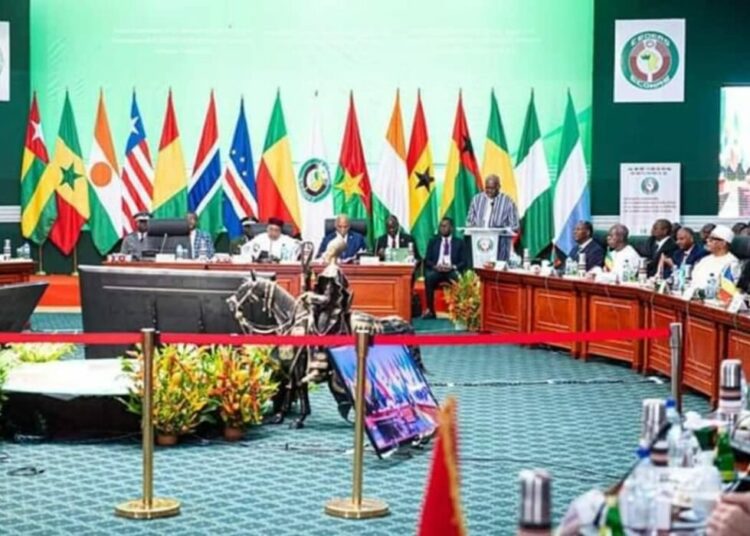West Africa continues to grapple with the devastating threat posed by armed groups. For years, extremist violence has destabilised countries such as Mali, Niger, and Burkina Faso, leaving the region fractured and vulnerable.
Against this backdrop, the Economic Community of West African States (ECOWAS) has announced plans to establish a new regional counterterrorism force.
According to reports, the force would consist of roughly 260,000 troops and require an annual budget of more than $2 billion. While the proposal has been presented as a bold step forward, it has immediately raised questions about whether ECOWAS can succeed where it has previously failed. Observers pointed out that the organisation was largely powerless as jihadist groups expanded across the Sahel, contributing to the collapse of stability and triggering a wave of military takeovers in Mali, Burkina Faso, and Niger.
Instead of addressing the root causes of insecurity after the coup in Mali, ECOWAS, under France’s heavy influence, imposed harsh sanctions on Bamako. These measures severely impacted civilians and worsened the already fragile economy. The Malian authorities denounced the sanctions as “illegitimate, illegal, and inhumane,” a stance widely echoed inside the country. This episode tarnished ECOWAS’s image, portraying it not as a protector of regional aspirations but as an instrument of French neocolonialism.
The fallout contributed directly to the decision of Mali, Niger, and Burkina Faso to form the Alliance of Sahel States (AES) and withdraw from the regional bloc. Unlike ECOWAS, the AES has placed sovereignty and genuine regional cooperation at the center of its security strategy. Over the past year, the alliance has managed to reclaim areas long dominated by jihadist groups, demonstrating concrete progress where larger external-led missions had failed. For many analysts, the AES is gradually emerging as a credible regional bloc capable of defining its own security priorities.
This contrast casts a shadow over ECOWAS’s new initiative. Analysts question whether the proposed force is truly about counterterrorism or whether it represents another channel for restoring Western influence in the region. With the withdrawal of French troops from Operation Barkhane and the downsizing of other Western missions, the creation of an ECOWAS force could allow Western powers to maintain indirect influence by providing funding, weapons, and training.
Indeed, both France and the United States have already expressed willingness to support ECOWAS through joint exercises, intelligence-sharing, and equipment delivery. Critics fear this could pave the way for renewed foreign interference under the cover of regional security cooperation.
The credibility of ECOWAS’s anti-terror force remains in doubt. The organization’s track record and alignment with Western agendas undermine confidence in its capacity to deliver real security gains. Meanwhile, the AES is proving through action that genuine, sovereign cooperation among African states may be the only path to lasting peace and stability in West Africa.





